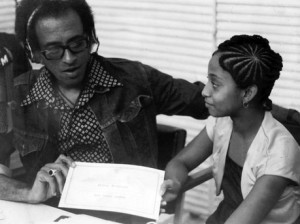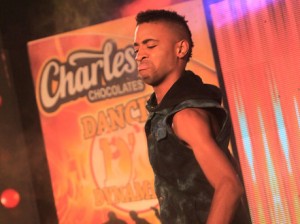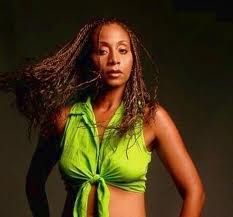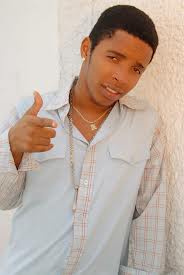
By Sadeke Brooks–
Being in the music industry is no easy feat. But being a child in this very stressful environment is an even harder task.
Singer Nadine Sutherland can fully relate, as she started out in the music industry at only 11 years old after winning the Tastee Talent Contest in 1979. Looking back, she says her experience was quite different from what many would expect.
“There has to be balance. I was so much more protected than an average child. It was stage, school, church and home,” she told The Sunday Gleaner.
“I don’t think I was really processing fame. My innocence and naivety were my protection in a very strange way. I think I have turned out relatively OK. My life didn’t bring all that drama. My parents were very strict.”
Sutherland said she used to fantasise about what her life would be like had she not been a child star. However, “I am proud of who I am and I have accepted who I am. I have accepted my childhood. I feel very lucky and I feel very blessed,” she said.
Despite her upbringing, she said, “If I have a child, I would not allow them to go into music right now. You can’t process a lot of things that fame comes with. My child would have to have major talent and have a good understanding of self.”
At only 19 years old, dancehall artist Kareem ‘QQ’ Dawkins has spent almost a decade in the business. For him, it was quite a taxing experience.
“It was very difficult. Time management played a big role and sacrifices had to be made. I personally made the sacrifices because I knew that this would make me live the life I wanted to live,” said QQ, who rose to fame with Poverty when he was only 10 years old.
“I did feel pressured ’cause at the end of the day, I was a youngster.”
QQ explained that it was sometimes difficult to get the microphone from other artists at stage shows and there were many persons who did not take him seriously. He said there were also some persons who said he should be focusing on school and not music.
In response to those persons, he said, “If I can be successful at a tender age, wouldn’t I be less of a burden to society? When you take a certain path, you can’t let people deter you.”
RIGHT GUIDANCE
With the right guidance, he said, a child can survive in the industry.
“It’s a good place for a child with necessary support. It is a very challenging industry to get into. It is rough, so you have to come in well fit. I don’t drink, I don’t smoke. I have a firmness within me. I go out and dem try draw mi out, but I keep my calm,” he told The Sunday Gleaner.
Evidence of his support system can be seen in the fact that he passed seven subjects in the Caribbean Secondary Education Certificate (CSEC) examinations in 2011.
“I got all of seven subjects. I was very grateful ’cause a lot of people were hoping for me to fail,” he said, noting that he took a break from music during the exam period.
While he is somewhat of a success story, QQ was barred from performing on a few occasions.
In July 2007, he was forced to cancel several shows abroad as advocates of Jamaica’s child labour laws forced the young star to desist from performing.
In a September 2007 interview, his father Joseph ‘GQ’ Dawkins said, “The Jamaican Government said I didn’t have the proper permit which had to be issued by the Jamaican authorities. We didn’t have a problem with the United States because they saw him suitable to grant him a work permit,” GQ said.
QQ was also at the centre of a custody battle between his parents, GQ and Jackqueey Banks, in October 2007.
During this time, QQ was not allowed to perform because he was a child and would have needed a special work permit to do so. But on March 30, 2009, his father was awarded full custody of QQ, who was 15 years old at the time and no longer needed a permit to perform.
According to Section 33 of Child Care and Protection Act (2004), “No person shall employ a child under the age of 13 years in the performance of any work.”
However, section 35 says “Notwithstanding the provisions of sections for 33 and 34, the minister responsible for labour may, on the Advice of the Council, issue a permit to a child to enable that child to be employed for the purpose of participating in artistic performances. (2) A permit issued pursuant to subsection (1) shall specify the number of hours during which and the conditions under which the child may be so employed.”
For Diahann Gordon-Harrison, the Children’s Advocate, while everyone has a right to choose, she believes there are some spaces that are not appropriate for children.
“When you have children who are under 15 being exposed to a particular lifestyle, it allows them to grow up a little bit too quickly. Their innocence should be preserved as long as possible,” she told The Sunday Gleaner.
She noted that the Child Care and Protection Acts makes provisions for children to be involved in artistic performances. And while there are persons who do pay attention to what she says, it is “still a “relatively new legislation”.
According to Gordon-Harrison, there needs to be some level of public education about the Act.
MATURITY LEVEL“Nothing is wrong with the industry, but something is wrong when you have somebody who is not experienced enough or have the maturity to deal with the industry,” Gordon-Harrison said.
The case of Shane-O, real name Roshain McDonald, was a bit different because he was over 15 years old when he broke onto the scene. Although he recorded his first song School Is Important when he was 11 years old, he did not make a major mark in the industry until he did Lightning Flash at 16.
Although he did not need a special permit to perform after his big break, he said the music industry can be quite difficult for a child.
“The school thing and performance is hectic. More time, yuh miss out, but yuh must can fill in back. Mi nuh have nuh regrets. Mi glad mi start from mi a youth ’cause now, mi well seasoned,” he said.
But as it relates to those wishing to take on music at a young age, he said, “Right now, school come first. You see fi anybody weh a do music ya now, just pause the music and do school, because music will always be there.”
Look out for part two of three in the ‘Dancehall: A Child’s Playground’ series where we look at children and their consumption of liquor at parties.














